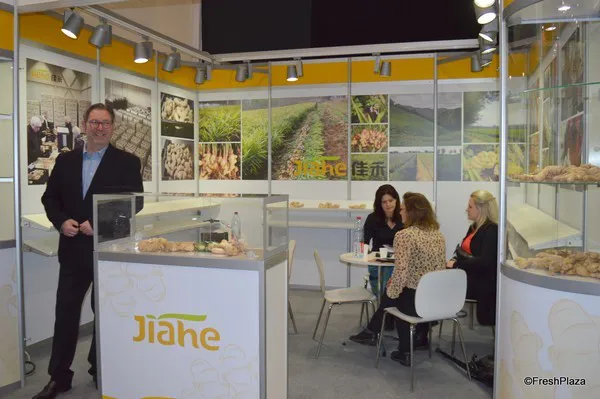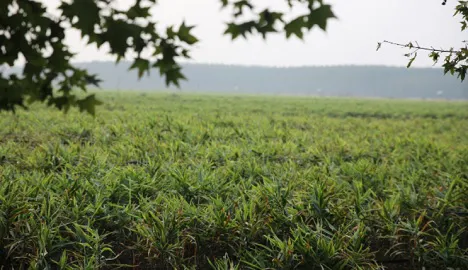The difficult sea freight situation, and with it the ship delays and increased freight prices, continue to shape the international fruit trade, and accordingly also the procurement of ginger. "For conventional goods from China, freight costs already account for 50% of the final trade price. Therefore, since the beginning of the export season in the spring, we have already lost considerable sums. From the current point of view, there will be no easing of the sea freight situation until the end of the year either," says Ralf Settels, Managing Director of Jiahe Food Ltd, a subsidiary of the international Jiahe Group.
Because of the situation, the first Chinese batches hit the European market relatively early this year, Settels said. "In retrospect, we then had to realize that the first ginger was harvested and shipped too early, with correspondingly disastrous qualities," he said. "For the current crop year, the area under cultivation in Peru was increased by about 30%. This leads to a marketing pressure there, which currently prevails. This has resulted in the current new plantings for the 2022 crop being cut back by 30 to 40%.''

Ralf Settels at Fruit Logistica 2020
Jiahe Food Ltd manages the import as well as the distribution of conventional as well as fresh ginger from China and Peru; the tuberous vegetable is offered both on the fresh market and to industrial customers. "Chinese organic ginger is currently well received, yet quantities are slowly running out. Although Peruvian organic goods are offered at 1 Euro/per kg cheaper, we are finding it rather difficult to market them. This is most likely due to the shape of the tubers or the size of the fruit, as Chinese tubers are generally larger and coarser, which makes them easier for consumers to peel," Settels explains.

Ginger production / Image: Jiahe Food Ltd
Continuous increase in demand
Despite the more difficult conditions in terms of transportation and logistics, Settels says the longer-term outlook on the ginger market is rather positive. "We see a continuous increase in global demand, both in the fresh market and in processing, such as in the beverage industry. The same applies to the turmeric product line, where we are seeing encouraging growth rates, especially in organic products."
For more information:
Jiahe Food Gmbh
Ralf Settels
Luxemburger Str. 9
41812 Erkelenz
Tel.: +49 2431 9724212 oder 9724214
Mail: rs@jiahefood.eu
www.jiahefood.eu
